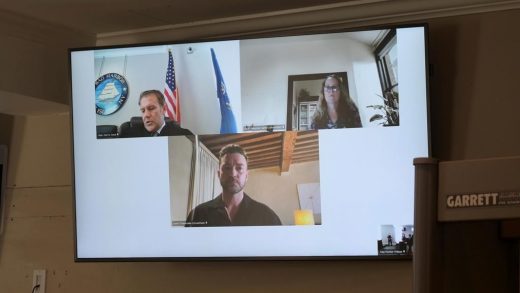Mental-health crisis response pilot program proves effective, will become permanent

A pilot project that saw mental-health workers attending non-emergency crisis situations to free up police and health resources is becoming permanent.
The provincial government announced $414,000 in funding to expand the Alternative Response to Citizens in Crisis initiative Friday afternoon, 18 months after the project first launched as a collaboration between the Winnipeg Police Service and Shared Health’s Crisis Response Centre.
“We recognize the importance of ensuring supports and services are available to Manitobans when and where they need them most,” Mental Health and Community Wellness Minister Janice Morley-Lecomte said Friday.
MIKE DEAL / WINNIPEG FREE PRESS
Mental Health and Community Wellness Minister Janice Morley-Lecomte announced $414,000 in funding to expand the Alternative Response to Citizens in Crisis initiative Friday afternoon.
ARCC pairs clinicians with plain-clothes officers in crisis situations, including suicidal ideation, post-partum depression, psychosocial crises and behavioural issues that don’t pose a threat to others. The program also supports “high-frequency users of emergency services,” Morley-Lecomte said.
The funding will expand ARCC’s response programming from five days a week to seven and is part of the province’s action plan for suicide prevention from Budget 2023. Other programs working toward suicide prevention will receive funding in the future, a statement from the province said.
In the year-long pilot period, ARCC was part of 882 police incidents, with 530 people involved. A review of the project found 82 per cent of those incidents were resolved solely through ARCC support. Police took 29 per cent fewer patients to emergency departments for mental-health assessments.
“The ARCC program has demonstrated initial exemplary results. ARCC has demonstrated that it has improved the experience for individuals in crisis, improved the co-ordination of the health and the justice system, has allowed for more efficient use of health and police resources, and improved safety for all of the people of Winnipeg,” Shared Health Crisis Response manager Erika Hunzinger said. “We’re very happy to see it continue.”
Data from 2020 shows police spent a total of 3,533 hours, or 147 days, waiting to transfer patients in crisis to clinical staff that year.
Credit: Mental-health crisis response pilot program proves effective, will become permanent


